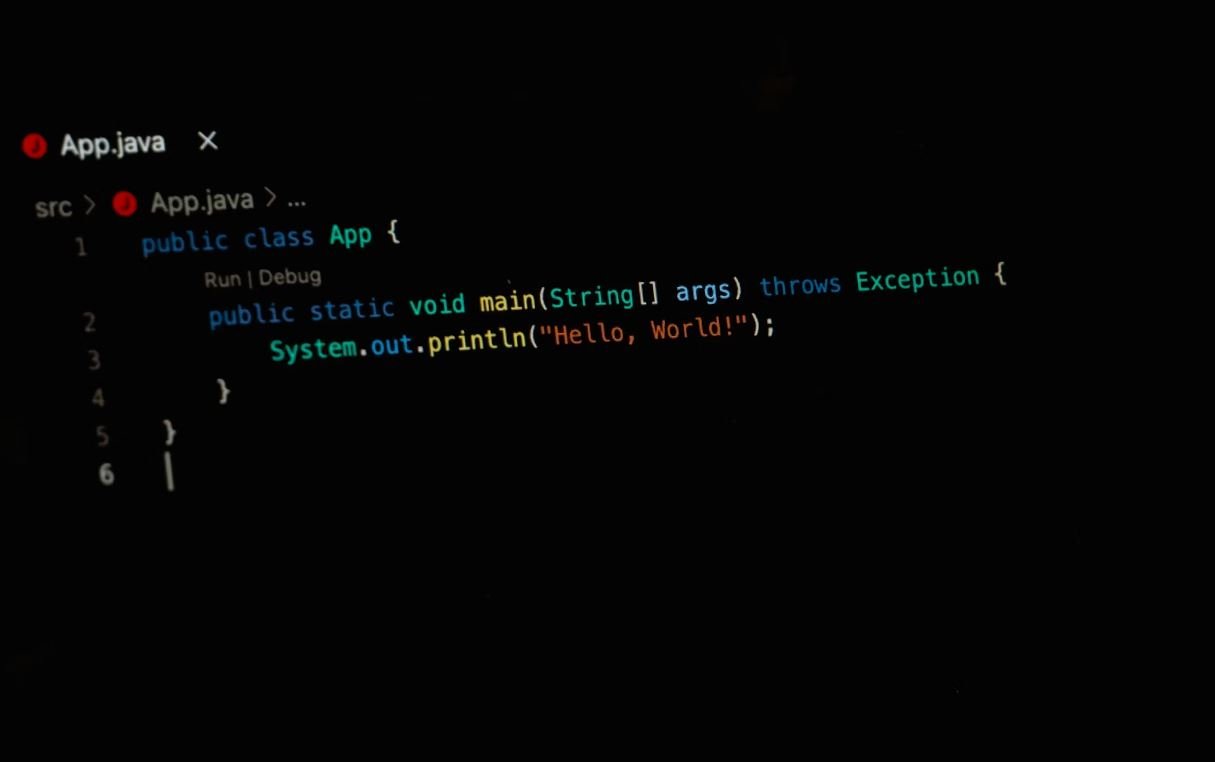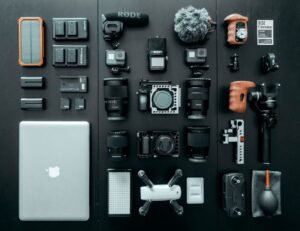Will AI Replace Human Workers?
Artificial Intelligence (AI) has revolutionized various industries, leading some to speculate whether AI will eventually replace human workers in many sectors. As technology continues to advance at an unprecedented pace, it’s important to understand the implications of AI on the future of employment.
Key Takeaways:
- AI has the potential to automate repetitive and mundane tasks.
- Human skills such as creativity, critical thinking, and emotional intelligence are difficult for AI to replicate.
- AI is more likely to augment human workers rather than completely replace them.
AI technologies are capable of performing tasks that were once exclusive to humans. From self-driving cars to voice assistants, AI has proven its ability to automate repetitive and mundane tasks, freeing up human workers to focus on more complex and strategic activities. However, *AI currently lacks the ability to replicate human skills such as creativity and emotional intelligence*, which are crucial in many industries.
1. **According to a report by McKinsey Global Institute, up to 375 million workers worldwide may need to switch professions by 2030 due to automation.** This indicates that certain job roles may indeed be at risk of being replaced by AI, especially those involving routine and predictable tasks.
2. *While job displacement may occur in certain fields, AI is more likely to augment human workers rather than completely replace them*. The partnership between humans and AI can be synergistic, with AI systems empowering workers by providing them with valuable insights and support to make better decisions.
Automation vs. Human Skills
| AI Automation | Human Skills |
|---|---|
| Efficiently performs repetitive tasks | Showcases creativity and innovation |
| Provides accurate data analysis | Employs critical thinking and problem-solving |
| Performs routine and predictable work | Applies emotional intelligence and empathy |
While AI is undoubtedly capable of automation, there are certain areas where human skills shine. For instance, creativity and innovation are abilities that machines cannot yet replicate. *Human beings possess the unique capability to think outside the box and come up with novel ideas*, which is vital in creative industries such as advertising and design.
1. **Critical thinking** is another valuable human skill that sets us apart from AI. While machines can analyze data quickly and accurately, they lack the capacity for abstract reasoning and complex problem-solving. Human workers can navigate ambiguous situations, considering multiple perspectives to find optimal solutions.
2. *Emotional intelligence*, the ability to recognize and understand emotions, is essential in many professions that involve human interaction. Empathy and compassion cannot be easily replaced by AI, particularly in healthcare, counseling, and customer service roles where human connection is crucial.
The Future of AI and Human Workers
Looking ahead, it is important to recognize that while certain job roles may be at risk of automation, the rise of AI also presents new employment opportunities and the need for reskilling. *Rather than replacing human workers, AI is more likely to transform job roles*, with human-AI collaboration becoming increasingly prevalent.
1. **As AI continues to evolve, it may create new jobs**. The development and maintenance of AI systems require skilled professionals, providing opportunities for individuals with technical expertise. Additionally, the adoption of AI in various industries will generate demand for workers to oversee and manage AI implementation.
2. *Reskilling and upskilling* will become vital in the era of AI. As certain tasks become automated, workers will need to acquire new skills to remain relevant. Adaptability and continuous learning will be key to staying ahead in the evolving job market.
Conclusion
While the impact of AI on human workers is a topic of concern and debate, it is crucial to approach it with a nuanced perspective. While AI has the potential to automate certain tasks, it is unlikely to completely replace human workers. Instead, AI is more likely to augment human capabilities and transform job roles, creating new opportunities and necessitating the development of new skills.

Common Misconceptions
Misconception 1: AI will completely replace all human workers
One common misconception about AI is that it will completely replace human workers in every industry. While it is true that AI can automate certain tasks and improve efficiency, it is not capable of replacing humans entirely.
- AI can handle repetitive and mundane tasks, allowing humans to focus on more complex and creative work.
- AI still requires human supervision and intervention for decision-making and problem-solving.
- Many jobs require emotional intelligence, empathy, and social skills, which AI currently lacks.
Misconception 2: All jobs will be taken over by AI
Another misconception is that AI will render many jobs obsolete, leaving millions of people unemployed. While AI will certainly impact certain job roles, it will also create new opportunities and transform tasks, rather than completely eliminating them.
- AI will require human workers to develop, operate, and maintain the technology itself.
- Adapting to AI technology will create new job roles and the demand for skilled workers in related fields.
- AI can complement human capabilities, enhancing productivity and opening up new industries.
Misconception 3: AI is only a threat to low-skilled workers
Some people believe that AI will only replace low-skilled workers, leaving high-skilled workers unaffected. However, AI has the potential to impact jobs across all skill levels and industries.
- AI can automate routine tasks even in high-skilled professions, such as data analysis and legal research.
- Skills that are easily replicable by AI, like data processing, may become less in demand.
- Workers in all fields can benefit from upskilling and reskilling to adapt to AI-driven changes.
Misconception 4: AI will result in mass unemployment
There is a fear that AI will lead to widespread unemployment as machines take over human jobs. However, historical evidence shows that technological advancements tend to create new jobs to replace the ones they disrupt.
- AI will create demand for jobs that involve developing, training, and maintaining AI systems.
- New industries and job roles will emerge as AI technology continues to advance.
- A shift in job tasks rather than complete job loss will be more likely due to AI implementation.
Misconception 5: AI will surpass human intelligence and take control
Some people have concerns that AI will surpass human intelligence and potentially gain control over humans. However, achieving general human-level intelligence, referred to as Artificial General Intelligence (AGI), is a complex and distant goal.
- Current AI systems are designed to perform specific tasks and lack the ability to reason and understand like humans.
- Robust safety and ethical frameworks are being developed to prevent unintended consequences of AI, minimizing the risks.
- Human oversight, regulation, and accountability will be important in guiding the development and deployment of AI systems.

The Rise of Artificial Intelligence
Artificial Intelligence (AI) has made significant advancements in recent years, raising concerns about its potential to replace human workers. This article explores various data and facts related to the topic, offering insights into the ongoing debate.
The Changing Job Landscape
This table highlights the projected growth of jobs that are at risk of being automated in the next decade.
| Job Sector | Percentage at Risk |
|---|---|
| Manufacturing | 50% |
| Transportation | 40% |
| Retail | 30% |
| Customer Service | 25% |
The Surge in Automation
Automation has become a prevalent force in various industries, leading to increased productivity and cost-effectiveness.
| Industry | Percentage of Tasks Automated |
|---|---|
| Manufacturing | 87% |
| Finance | 62% |
| Healthcare | 45% |
| Agriculture | 32% |
The Impact on Employment
This table demonstrates the correlation between AI development and job loss in various industries.
| Year | Job Loss in Manufacturing | Job Loss in Customer Service |
|---|---|---|
| 2010 | 30,000 | 10,000 |
| 2015 | 100,000 | 35,000 |
| 2020 | 250,000 | 100,000 |
The Future Workforce
This table illustrates the changing types of jobs that could emerge as a result of AI implementation.
| New Job Role | Job Description |
|---|---|
| AI Ethicist | Ensures responsible and unbiased development and use of AI technology. |
| Robotic Rehabilitation Counselor | Assists individuals in adjusting to the proliferation of automated systems. |
| Virtual Reality Experience Designer | Creates immersive digital environments for entertainment and educational purposes. |
Skills in Demand
This table presents the skills that are likely to be most sought after in the AI-dominated job market.
| Desired Skill | Projected Demand |
|---|---|
| Data Science | 80% |
| Machine Learning | 70% |
| Robotics | 65% |
| Human-Machine Interaction | 55% |
Economic Impact of AI
This table summarizes the expected economic impact of AI implementation in the near future.
| Revenue Boost | Cost Reduction |
|---|---|
| $2.9 trillion | $1.2 trillion |
Social Implications
This table examines various concerns and implications related to the integration of AI into society.
| Issue | Extent |
|---|---|
| Ethics and Privacy | High |
| Job Displacement | Medium |
| Income Inequality | Medium |
The Role of Education
This table highlights the importance of adapting educational systems to prepare individuals for an AI-driven future.
| Education Level | Priority |
|---|---|
| STEM Fields | High |
| Arts and Humanities | High |
| Vocational Training | Medium |
Collaboration between Humans and AI
This table emphasizes the potential for a symbiotic relationship between humans and AI, where both contribute their unique strengths.
| Human Strength | AI Contribution |
|---|---|
| Creativity | Data Analysis |
| Empathy | Efficiency |
| Critical Thinking | Precision |
As AI continues to advance, the debate surrounding the replacement of human workers persists. The data presented demonstrates the potential for job displacement across various industries and highlights the need for individuals to adapt their skillsets to remain competitive. While concerns about ethics, privacy, and income inequality arise, it is crucial to recognize the economic benefits that AI can bring, as well as the opportunities for collaboration between humans and intelligent machines. It is in embracing these opportunities and effectively preparing our education systems that we can navigate the future of work in an AI-dominated world.
Will AI Replace Human Workers?
1. What is AI?
AI, or Artificial Intelligence, refers to the development of computer systems capable of performing tasks that typically require human intelligence. These tasks include speech recognition, decision-making, problem-solving, and learning.
2. How does AI affect the workforce?
AI can have both positive and negative impacts on the workforce. While AI has the potential to automate certain tasks and improve efficiency, it may also lead to job displacement and changes in the types of skills required for certain positions.
3. Will AI completely replace human workers?
AI is not expected to completely replace human workers, but rather change the nature of work. Certain repetitive and manual tasks are more likely to be automated, while jobs requiring creativity, empathy, critical thinking, and complex decision-making are likely to remain in the realm of humans.
4. What types of jobs are at risk of being replaced by AI?
Jobs that involve routine and predictable tasks such as data entry, assembly line work, and basic customer service are at a higher risk of automation. However, it is important to note that AI may also create new job opportunities in emerging fields.
5. Will AI lead to unemployment?
The impact of AI on unemployment is uncertain and highly debated among experts. While some believe that AI will indeed result in job loss, others argue that it will lead to the creation of new jobs and drive economic growth.
6. How can individuals adapt to the increasing presence of AI?
To adapt to the increasing presence of AI, individuals can focus on developing and enhancing skills that are difficult to automate, such as creativity, critical thinking, problem-solving, and emotional intelligence. Lifelong learning and continuous upskilling are also crucial in remaining competitive in the job market.
7. Will AI be able to replace jobs in all industries?
AI has the potential to impact jobs in various industries, but the extent of its influence may vary. Industries that rely heavily on manual and repetitive tasks, such as manufacturing, transportation, and customer service, are more likely to experience significant changes.
8. How can companies utilize AI without causing job displacement?
Companies can utilize AI in a way that complements human workers rather than replacing them. By automating certain tasks and processes, companies can free up employees’ time to focus on value-added activities, foster innovation, and improve overall productivity.
9. Is there a need for regulations or policies to govern the use of AI?
The rapid advancement of AI technology has raised concerns about ethics, privacy, and potential negative consequences. Some argue that there is a need for regulations or policies to ensure responsible and ethical use of AI, while others propose self-regulation within the industry.
10. Can AI ever possess human-like qualities and replace humans in all aspects of work?
While AI has made significant progress, achieving true human-like qualities remains a challenge. AI may be able to perform certain tasks better than humans, but replicating human intuition, social interaction, and empathy is much more complex. It is unlikely that AI will completely replace humans in all aspects of work.




